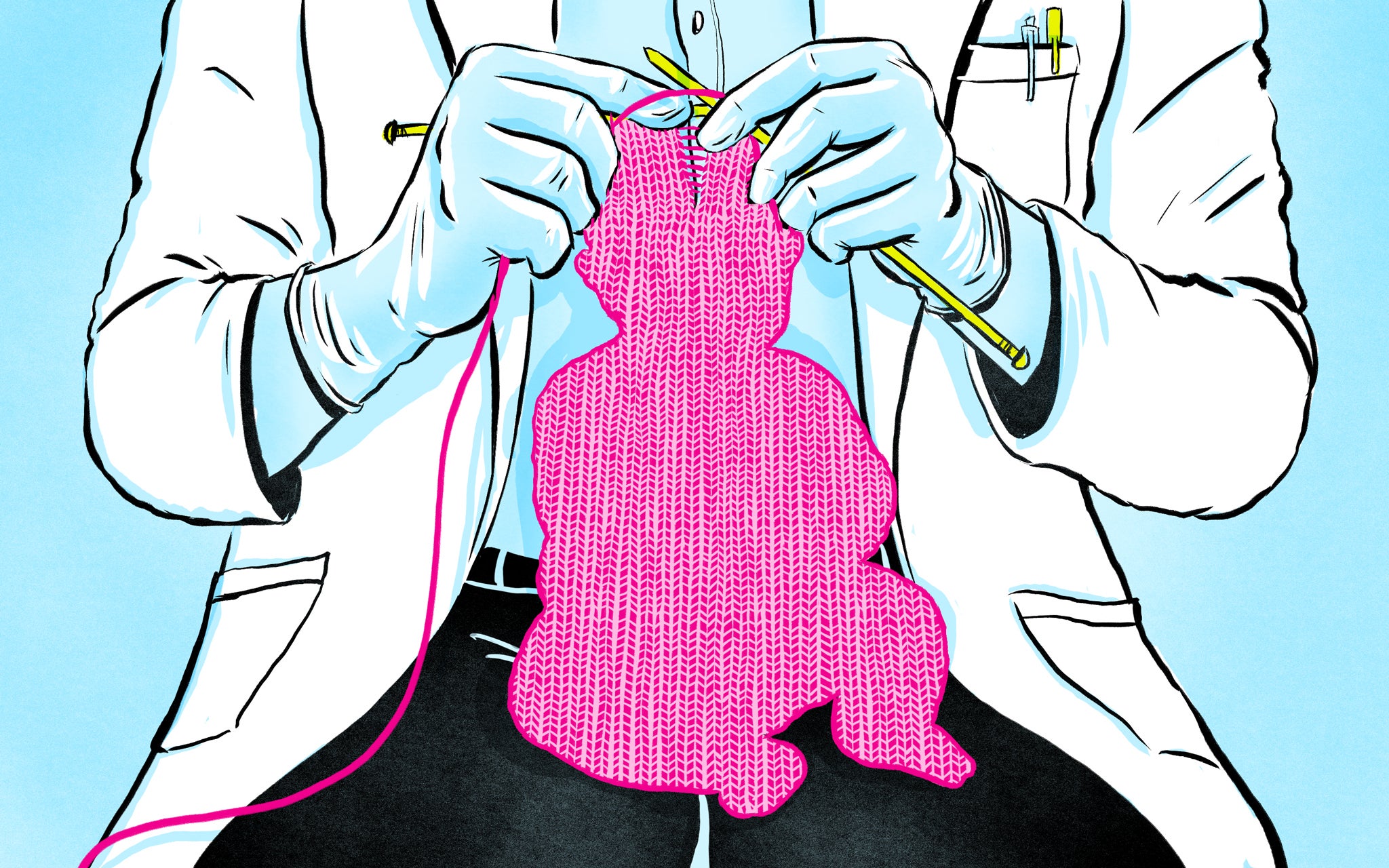Science does not care about what people believe nor what is considered popular belief, but what happens when art--a human discipline that wants to expand or challenge popular belief--and biology/biotechnology intersect? The outcome of this convergence is BioArt, an emerging discipline that is important for both the artistic and scientific community. BioArt not only pushes the boundary of what is considered art, but also initiates conversation on ethical, aesthetic, and social consequences that occur as humans "play God" by manipulating lifeforms.
BioArt remains controversial from a practical, moral, and ethical standpoint. Some argue BioArt, a form of outlaw biology, is bordering on criminal biology because of its lack of ethics by putting animals under an unnecessary amount of pain and suffering. Those against BioArt can claim that the field has no purpose and is simply wasting valuable scientific resources that can be used to find cures and answers about our genetic makeup. On the other hand, one can also argue that life creates art, which includes the fields associated with biology and biotechnology, making BioArt a valid form of artistic expression and a necessary component in our society as biotechnology continues to improve.
This week's topic immediately reminded me of the debate on "designer babies," children whose parents have intentionally selected their genetic makeup before the child's conception. We already know the benefits of this type of genetic modification, as it can prevent children from being born with genetic defects and save their lives as well as a lifetime of hardships. The controversy lies, however, in the idea that parents can alter their children's genome to achieve certain physical traits. If we can customize our Nike Free Runs, then why should we be prevented from customizing our children before they were born? If our goal is to be perfect, is this not the way to achieve perfection? If we are so concerned about our viability as a species, wouldn't genetic modification and manipulation be the solution to our concerns? That being said, however, designer babies likely garner controversy because their conception is clearly tied to the idea of eugenics, a movement whose practices have been historically unethnical.
Regardless of the controversy surrounding BioArt, I believe it is here to stay. BioArt fills an important gap between science and art, raising questions about purpose, ethics, morality, and control over art/science and the results of the convergence of the two fields. BioArt may lead to subjectively repulsive results, but it is important that we question why we react the way we do to it in order to reflect on the direction of science and how art plays a pivotal role in its future trajectories.
Sources
Bach, Becky. "Book Tackles the Bioethics of 'Designer' Babies." Scope. Stanford. Web.
Dvorsky, George. "Here's Why We'll Eventually Have to Accept Designer Babies." Gizmodo. Web.
"Eugenics." Wikipedia. Web.
Kelty, Chris. “Meanings of Participation: Outlaw Biology?”. Web.
Levy, Ellen. “Defining Life: Artists Challenge Conventional Classifications.” Web.
Maldarelli, Claire. "Are We Ready for Designer Babies? The Debate on how to Regulate CRISPR Heats Up." Popular Science. Web.
Vesna, Victoria. “BioArt pt. 1-5.” Lecture. Web.


The point that you made about how parents are genetically engineering their ideal baby is such a great point! I did not consider this to be part of the argument but yes this brings about the moral and ethical questions about if this is actually okay and if there should be a line drawn before this. When using this technique to make sure that your child does not have any hardships in their life is different than when a parent is trying to engineer their ideal child for the purpose of making sure that they are ahead of the game. This question will just become more and more controversial!
ReplyDeleteI liked your point that bioart fills an important gap between science and art regardless of the controversy around the bioart; also I liked your point that we need to question why we react the way we do. I enjoyed reading your blog.
ReplyDelete